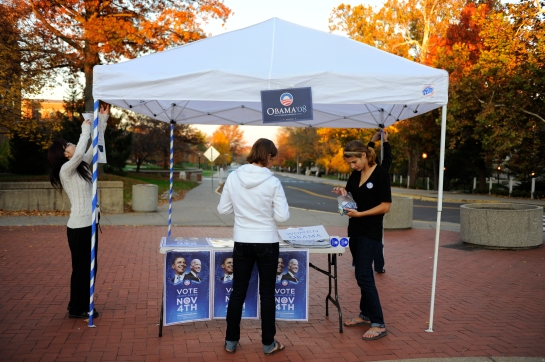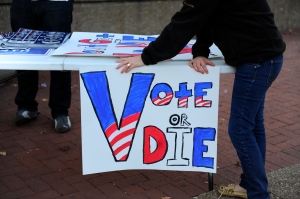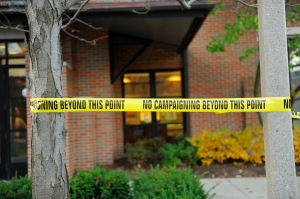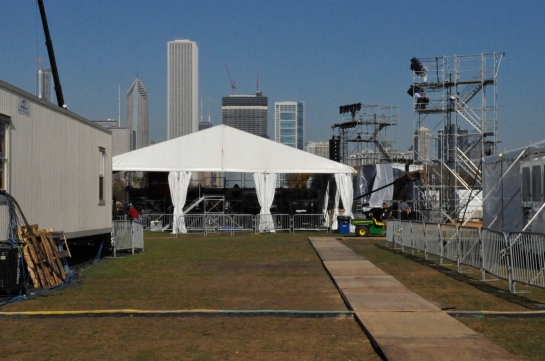By Lisa Pham in Paris
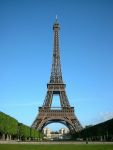 For the Americans in Paris, tonight will either be a night of celebration or despair.
For the Americans in Paris, tonight will either be a night of celebration or despair.
Liz Webber, 22, an American intern at the International Herald Tribune in Paris, is planning to go to an all-night party hosted by Americans Abroad for Obama at the Palais Maillot in Paris where 1200 supporters are expected. “If McCain wins, I’ll try not to cry,” she says. Explaining that her birthday next year is the same day that the new President will take office, Liz hopes that she will “be drinking to celebrate and not to drown my sorrows.”
Does it feel weird to be in Paris while the elections are on? “I do feel slightly removed from it all,” she admits, “especially since I voted a few weeks ago by mail. But I am still very nervous!” Like most of her friends in New York, Liz is politically liberal. It is her second time voting in the presidential elections. “Although I do like Obama, I’m really voting for the party and not the person,” explains Liz. “The Republican beliefs in limited spending on social programs, tax cuts for the rich and curtailing a woman’s right to abortion completely go against my values.”
With doors opening at midnight on Tuesday (8pm in the US), the party includes entertainment, analysis, bagels, cream cheese and live interactive blogging. The event should last until wednesday morning. There are also rumours of a Sarah Palin piñata to round off the festivities.
Depending on how close the results are, the Americans here in France might not know who wins until Thursday. Early indications are expected around midnight.“I’m looking forward to being surrounded by a lot of like-minded Americans and non-Americans,” says Liz. “I hope we end the night on a happy note.”






